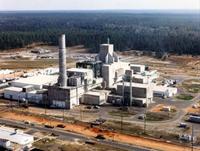-
Software spots malicious behavior by apps
Last year at the end of July the Russian software company Doctor Web detected several malicious apps in the app store Google Play. Downloaded on a smartphone, the malware installed — without the permission of the user — additional programs which sent expensive text messages to premium services. German computer scientists have now developed software which can discover such malicious apps already in the app store. The software detects pieces of code where the app accesses sensitive data and where data is sent from the mobile device.
-
-
High level of “brain waste” among highly educated immigrants
Many highly educated immigrants coming to the United States without a job lined up have been unable to find work at their level of education, leading to considerable “brain waste,” researchers have found. The prevalence of such “brain waste” exceeded 40 percent for immigrants with a bachelor’s degree, 50 percent for those with a doctoral or professional degree, and 75 percent for those with a master’s degree.
-
-
Biometric security for mobile devices becoming mainstream
Biometric security such as fingerprint, face, and voice recognition is set to hit the mainstream as global technology companies market the systems as convenient and easy to use. The latest biometric technologies are not without their security issues, but they are marketed as more convenient than traditional methods rather than more secure, and encourage adoption by people who currently do not have any security on their phone at all.
-
-
Pentagon to fund new “kill vehicle” for missile defense
The Pentagon’s fiscal 2015 budget includes $8.5 billion in funding for missile defense programs. About $300 million will be used on a new kill vehicle and it support systems. A Pentagon official said that a new kill vehicle was needed because the current system suffered from “bad engineering” and has failed several tests.
-
-
Platform for operating systems would outwit cyber criminals
As smartphone use surges, consumers are just beginning to realize their devices are not quite as secure as they thought. A Swedish research team is working on a way to secure mobile operating systems so that consumers can be confident that their data is protected.
-
-
Collecting digital user data without compromising privacy
The statistical evaluation of digital user data is of vital importance for analyzing trends. It can also undermine users’ privacy. Computer scientists have now developed a novel cryptographic method that makes it possible to collect data and protect the privacy of the user at the same time.
-
-
CBP awards $145 million border towers contract to Elbit
DHS’s Customs and Border Protection(CBP) has awarded Elbit Systems of America, a subsidiary of Israeli based Elbit Systems, a $145 million contract for the Integrated Fixed Tower (IFT) project along the Mexico-Arizona border. The first phase of the project includes a number of observation towers along the Nogales, Arizona border with Mexico. Additional options could include towers at over five other border sections in Arizona.
-
-
Securing Industry 4.0
An increasing number of unsecured, computer-guided production machinery and networks in production facilities are gradually evolving into gateways for data theft. New security technologies may directly shield the sensitive data that is kept there.
-
-
Energy Department suspends work on controversial plutonium reprocessing project

The Obama administration has decided to put on hold its plans to complete construction on a South Carolina reprocessing facility which would convert nuclear weapon-grade plutonium into reactor fuel. The suspension of work on the project is part of the fiscal 2015 budget plan the administration unveiled Tuesday. The project has been hobbled by delays and massive cost-overruns, and experts says security and safety concerns have not been adequately addressed.
-
-
Two politicians insisting on more congressional oversight of DHS
The lawmakers who support the proposed DHS Acquisition Accountability and Efficiency Act, authored by Representative Jeff Duncan (R-South Carolina), are doing exactly what they were sent to Washington to do: they are attempting to provide fiscal oversight over one of our largest federal agencies. Hopefully, politicians on both sides of the aisle will join Representatives Duncan and Michael McCaul (R-Texas) in passing legislation forcing DHS to use tax payer money in the most efficient ways possible, including demanding contractors meet the terms of their contracts, not rewarding contractors who have a record of poor performance, and completing their security-related projects in a timely manner.
-
-
BGU startup Titanium Core wins Cybertition cyber security competition
Ben-Gurion University of the Negev startup Titanium Core won the first Jerusalem Venture Partners (JVP)-sponsored Cybertition cyber security competition. Titanium Core uses a multilayered security approach to repel attacks on mission-critical systems, provide real-time attack information, and prevent threats from moving onto other computer systems. The company will receive $1 Million investment from JVP and space in the JVP Cyber Labs incubator, located in the cyber center in Beer-Sheva, adjacent to Ben-Gurion University.
-
-
Experts call for a new organization to oversee grid’s cybersecurity

In 2013, U.S. critical infrastructure companies reported about 260 cyberattacks on their facilities to the federal government. Of these attacks, 59 percent occurred in the energy sector. A new report proposes that energy companies should create an industry-led organization to deflect cyber threats to the electric grid. Modeled after the nuclear industry’s Institute of Nuclear Power Operations, the proposed organization, to be called the Institute for Electric Grid Cybersecurity, would oversee all the energy industry players that could compromise the electric grid if they came under a cyberattack.
-
-
Operator set to close three Illinois nuclear power plants

Abundant natural gas and growing reliance on solar and wind energy have been steadily eroding the profit margins of nuclear energy. Last year operators have shut down four nuclear plants in the United States last year. Exelon Corporation, which operates six nuclear plants in Illinois, has notified Illinois state regulators that legislative actions may be necessary to keep half of its Illinois nuclear plants from closing, since current market forces make it impossible to continue the operation of the plants profitably.
-
-
What use are apps when your web infrastructure is underwater?
This winter has seen unprecedented high winds and flooding resulting in widespread and in some cases, long-lasting power outages in the United Kingdom, particularly in the west of England. Time and time again, companies have advised their customers to go online to check their Web sites for the latest information. Some organizations have even created apps specifically designed to assist flood victims; others have established Facebook self-help groups. There is a fundamental problem here: There are two primary ways in which we gain access to the Web, via a landline and using a mobile connection. Within our homes the landline connects to a wireless router and also, for a lot of homes, a cordless telephone, both of which need electrical power to work. So, when the lights go out, your router and cordless phones are useless. The result is that at times of crisis, the customers in most need are often the ones with no access.
-
-
NIST’s voluntary cybersecurity framework may be regarded as de facto mandatory
The National Institute of Standards and Technology’s (NIST) voluntary cybersecurity frameworkissued in February establishes best practices for companies that support critical infrastructure such as banking and energy. Experts now warn that recommendations included in the framework may be used by courts, regulators, and even consumers to hold institutions accountable for failures that could have been prevented if the cybersecurity framework had been fully implemented by the respective institution.
-
More headlines
The long view
Factories First: Winning the Drone War Before It Starts
Wars are won by factories before they are won on the battlefield,Martin C. Feldmann writes, noting that the United States lacks the manufacturing depth for the coming drone age. Rectifying this situation “will take far more than procurement tweaks,” Feldmann writes. “It demands a national-level, wartime-scale industrial mobilization.”
Trump Is Fast-Tracking New Coal Mines — Even When They Don’t Make Economic Sense
In Appalachian Tennessee, mines shut down and couldn’t pay their debts. Now a new one is opening under the guise of an “energy emergency.”
Smaller Nuclear Reactors Spark Renewed Interest in a Once-Shunned Energy Source
In the past two years, half the states have taken action to promote nuclear power, from creating nuclear task forces to integrating nuclear into long-term energy plans.
